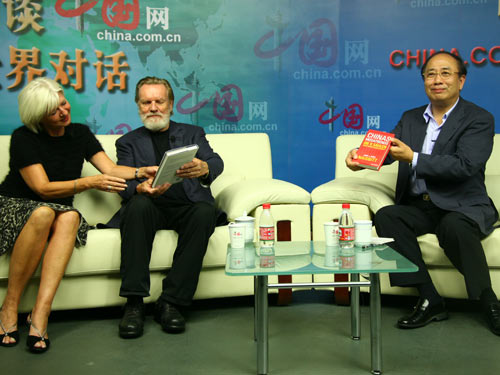Comparing the Western and Chinese social systems to differently designed trains, Naisbitt said, "In many ways the Chinese train has become a better train and this is something that is incomprehensible to the West. They block it out and they don't want to know any more about it because they resent it at some level."
"The whole world can learn about building trains by taking a ride, as we have, on the China train.
"You don't have to get the model from the West. We have a new model for a social, economic system, society, and that new model is China."
Naisbitt denounced what he called "China-bashing" in the Western media and said it resulted from a combination of fear of China's growing power and envy of the country's economic success.
"I don't think it's a different kind of values. It's about how the society is doing and how well the economy is doing, that's the big issue and the whole geo-political picture, the shift from the West to the East, with China being the leader in the East.
"The reason there is so much talk about freedom, human rights and all these other issues is because China is so successful as a country, so successful as an economy. If this wasn't the case the West wouldn't give a damn what the values were in this country," he said.
 |
|
Chairman of the Foreign Affairs Committee of the CPPCC and Former Minister of the SCIO, Zhao Qizheng (R), American Futurist John Naisbitt (C) and his wife Doris Naisbitt (L).
|
In a televised discussion with Naisbitt, Zhao Qizheng, former head of China's State Council Information office drew attention to significant cultural differences between China and the West.
"Western and Chinese values are different. America's value system stresses personal wealth. Wealth confers social position, the freedom to do whatever you want and obtain whatever you want. In China it is different. China values freedom within the context of the state or collective above personal freedom," said Zhao.
John Naisbitt established his reputation as co-author, with Patricia Aburdene, of the 1982 book Megatrends, which sold 9 million copies and topped the New York Times best-seller list for more than two years. In 2007, together with a group of Chinese academics and entrepreneurs, he set up the Naisbitt China Institute, a non-profit organization dedicated to studying China's social and economic transformation.
(China.org.cn September 4, 2009)